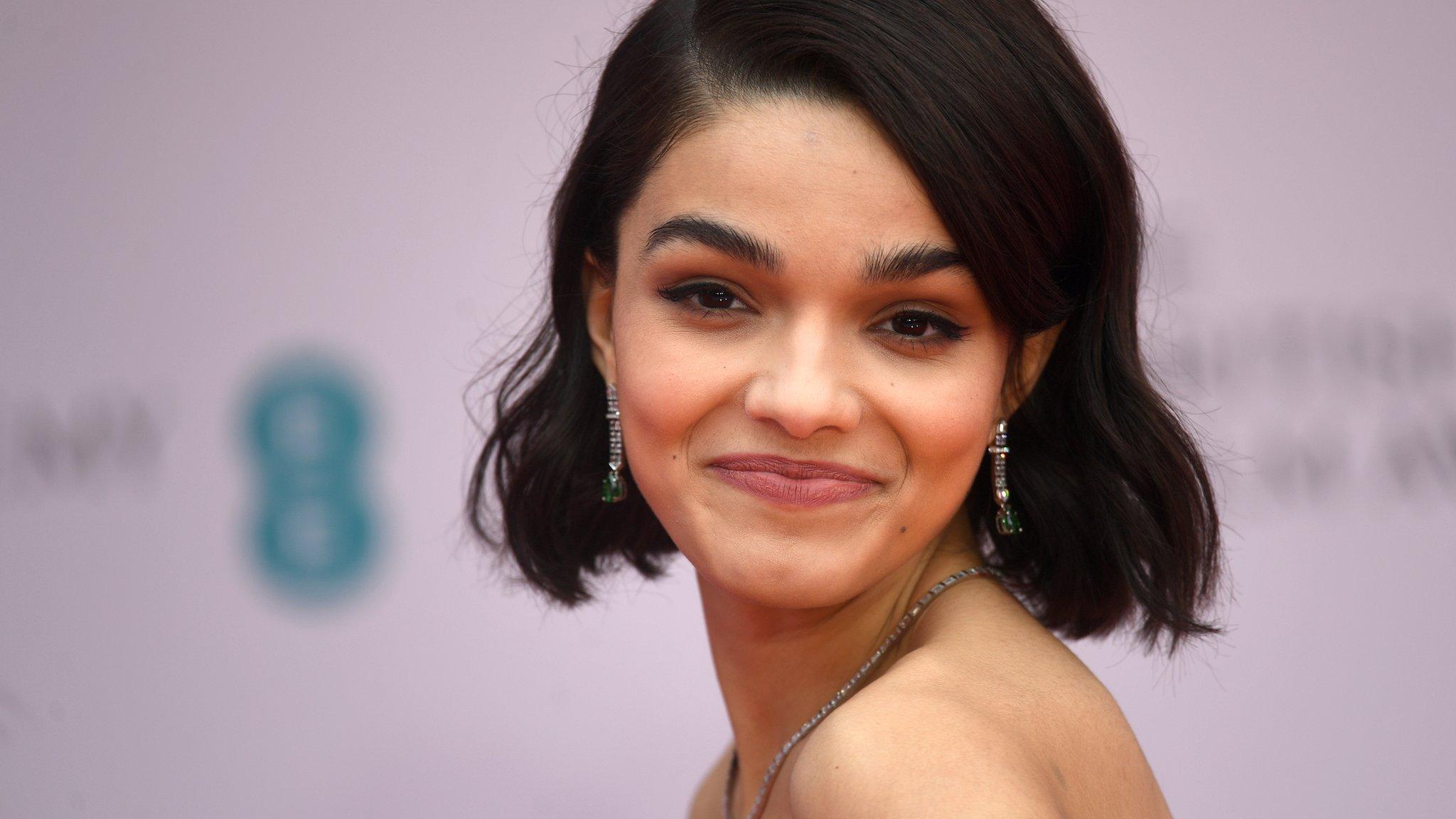How the feel-good film Coda caused an Oscars upset
- Published
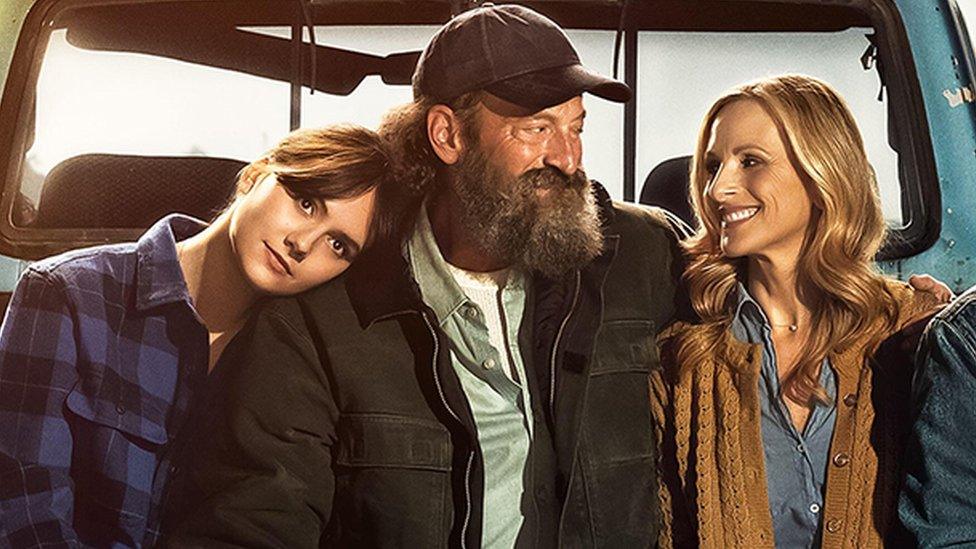
Statistically, Coda should not have been a strong contender to win best picture at the Oscars.
The small, independent film had just three nominations but walked away from the 94th Academy Awards with trophies for each of them - including the big one, best picture.
An acronym for Child of Deaf Adults, Coda tells the story of the hearing daughter of a deaf family, who has to balance the demands of helping them in their daily lives with her own ambitions to be a singer.
Welsh actress Emilia Jones, who plays the lead role in the movie, said she was "on cloud nine" at the film's Oscar success.
"What our movie has done, I think, it's brought people together... and I'm really hoping it opens doors," she told the BBC at the Vanity Fair Oscars Party.
In a touching moment, the audience applauded in sign language as the cast and crew accepted the best film prize.
Backstage, Jones said she was delighted to see nominees like Andrew Garfield and Ariana DeBose signing with her co-star and best supporting actor winner Troy Kotsur.
"It's been really beautiful watching people adapt and change and learn more signs," said Jones, who herself learned sign language to appear in the film. "I'm honestly so happy".
Watch: Coda star and Oscar nominee inspires deaf children to dream big
Her co-star Marlee Matlin was similarly overwhelmed.
"A lot of people will be thinking about deaf actors now, thinking of ideas, scripts and collaborations," she told the BBC.
"It's amazing that finally our movement has been heard and we've broken through all the barriers. People are appreciating us and honouring us - it's wonderful.
She added: "It's been a long time coming. Thirty-five years I've been waiting to tell people that there are deaf actors out there eager to work."
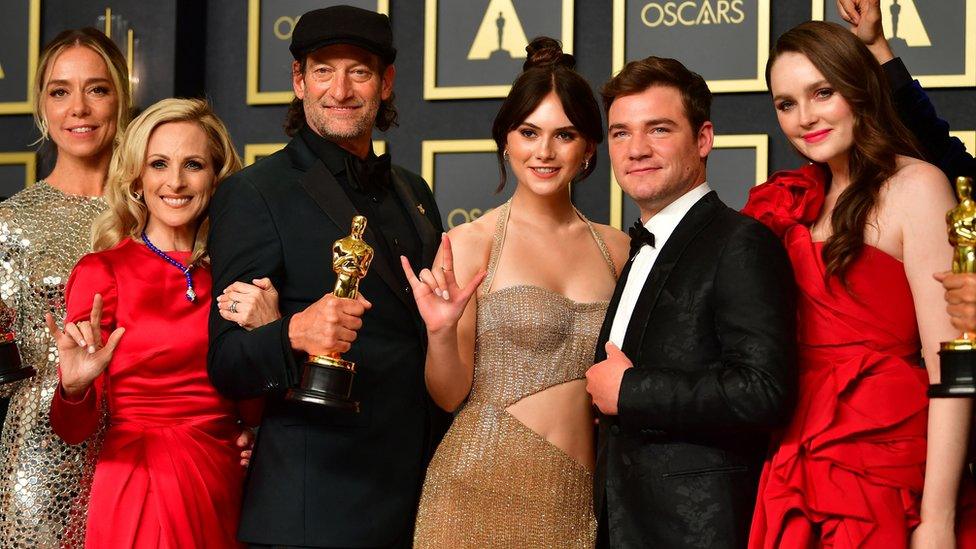
Not since 1932 has a film with fewer than four nominations won best picture at the Oscars
Premiering at the Sundance Film Festival in January 2021 and released to streaming audiences that August, the Sian Heder-directed film has slowly but surely found a devoted audience and become a word-of-mouth hit.
Coda is an English-language remake of the 2014 French film La Famille Bélier, directed by Éric Lartigau.
Following its box office success in France, producer Philippe Rousselet approached Massachusetts-born filmmaker Heder about the possibility of adapting the story for a US audience.
But getting it from the early stages of development to a best picture winner was not an easy journey.
After taking the reins, the first person Heder cast was Matlin, who was the first deaf actor to win an Oscar in 1986 for her performance in Children of a Lesser God, and has since appeared in The L Word and The West Wing.
But once Matlin was on board, producers were faced with a significant hurdle. The studio that initially agreed to finance the film asked for big-named stars to appear in it. The absence of high-profile deaf actors meant Heder was under pressure to hire hearing actors with more box office appeal.
He and Matlin refused and, as a result, the studio halted production. Months later, the team found some independent funding to go ahead and start filming.
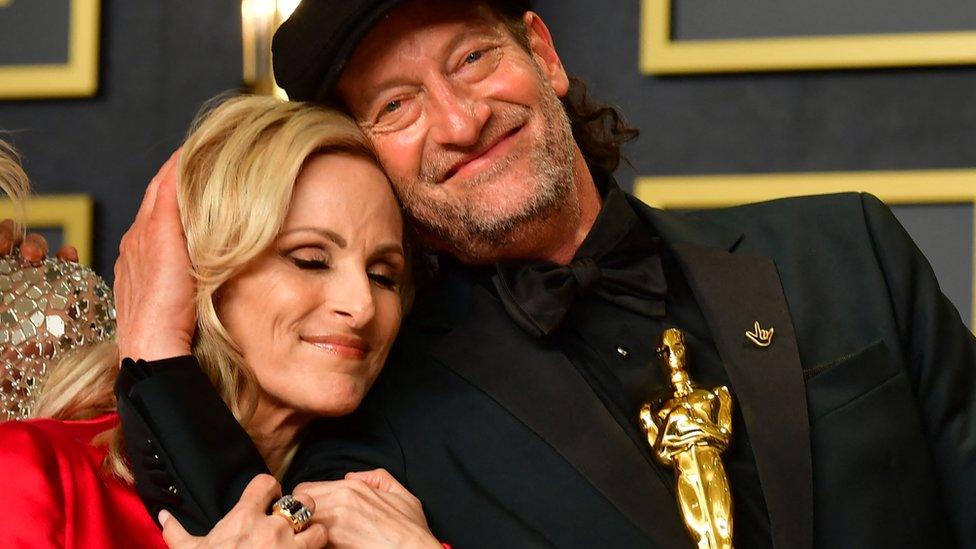
Marlee Matlin the first deaf actor to win an Oscar celebrates with Troy Kotsur winner in 2022
After being financed independently, Heder got the cast she wanted - with Kotsur, who had appeared in Scrubs and CSI, joining to play Matlin's partner.
After winning best supporting actor Kotsur dedicated his win to "the deaf community, the Coda community and the disabled community", adding: "This is our moment."
Daniel Durant joined the cast to play the couple's son, but Ruby - the family's hearing daughter - proved the hardest part to cast.
"To find that girl was a massive search," Heder told the BBC at the Baftas.
"I needed someone who was going to sign fluently, who was going to sing, who was going to act her ass off and carry every scene. At one point my casting director said I was looking for a unicorn."
But the search continued until the team found British actress Jones, who had been starring in Netflix fantasy horror Lock & Key (and who is the daughter of singer and TV presenter Aled).
Emilia Jones took singing lessons and ASL classes for nine months in preparation for the role. "I had so much to learn for this movie," she told the BBC's Colin Paterson. "The film is about a culture and a family that's rarely seen on screen.
"And it's giving people an insight into a culture. I knew nothing about deaf culture before I went into this movie. But it's also teaching people that no matter what language you speak, or where you're from, love is love."
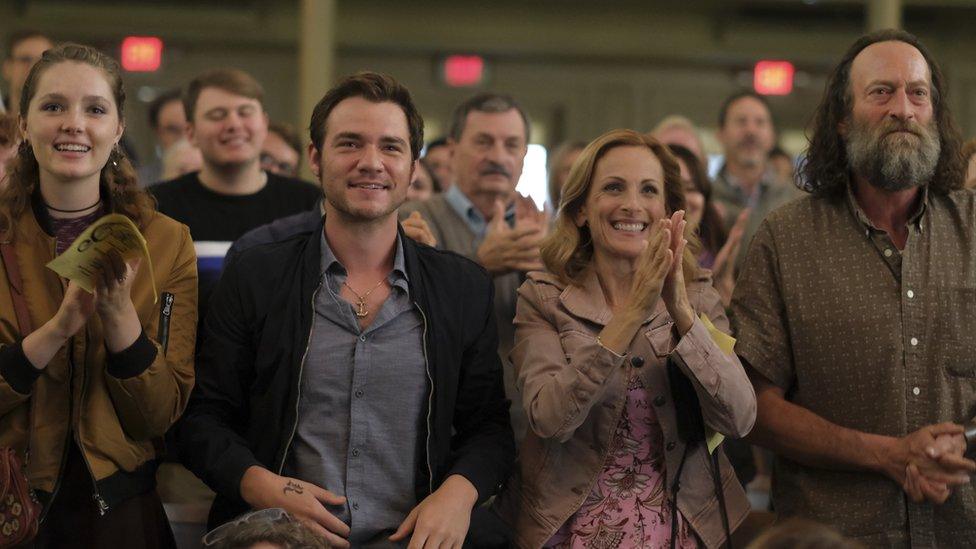
Amy Forsyth (L) plays Ruby's friend, Daniel Durant plays Ruby's brother, and Marlee Matlin and Troy Kotsur play her parents
With financing secured and the cast finally in place, Coda was filmed in Gloucester, Massachusetts, over the summer of 2019. "We were a very scrappy production," Heder recalled. "This was an independent and low-budget movie.
"We had no resources, I think my hope with this movie was 'please let it sell, please let someone want it and distribute it and get it out in the world. And please let me make another movie'. That's where I was coming from."
With hindsight, Heder had nothing to worry about. Coda received its world premiere at a virtual Sundance festival, debuting to warm reviews from critics. It was quickly snapped up by Apple for $25m (£19m), external - a record for the festival but a relative bargain considering what it has gone on to do.
"We have now become a part of Hollywood, but this was definitely kind of an outsider film," Heder reflected.
Coda is one of several recent films to have featured deaf characters - following Sound of Metal, Marvel's Eternals (which has a deaf superhero) and A Quiet Place parts one and two.
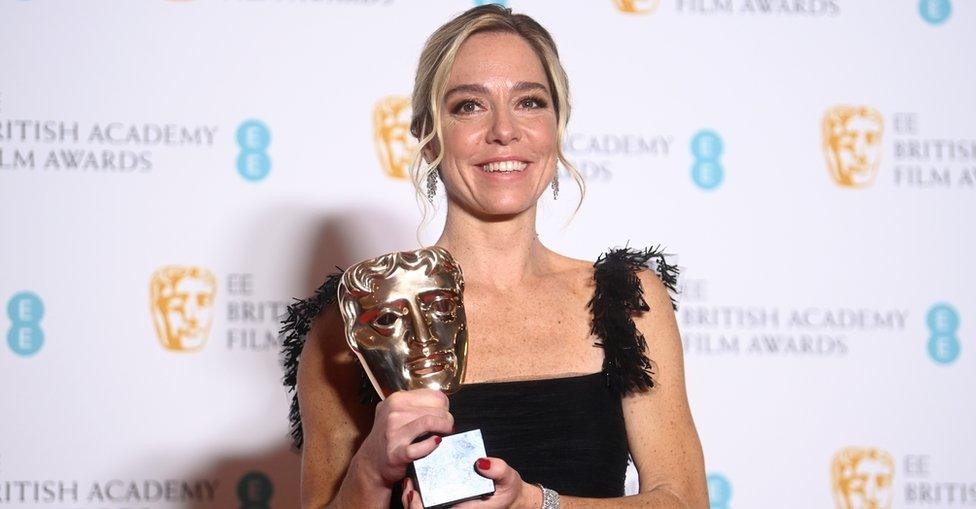
Sian Heder was a surprise winner of best adapted screenplay at this month's Bafta Film Awards
However, Coda wasn't loved by everyone. Deaf critic Liam O'Dell suggested, external viewers were being fed the narrative that deaf people "have to settle for the inaccessible environment around them in order for a hearing individual, Ruby, to have any real sense of fulfilment".
"Coda shines completely the wrong light on how to tackle inaccessibility, in a negligence which is both harmful and dangerous for an impressionable hearing audience," he added.
Jemina Edwards, who is part of Coda UK & Ireland and whose parents are both deaf, told Metro: , external"It was never going to be a perfect film that encapsulates everyone's experiences because every Coda has got a different experience.
"Some bits I found a bit uncomfortable, it felt like it was aimed more at a hearing audience than a deaf or coda audience."
A section where a character's "deaf voice" was described as ugly "didn't sit well with me", agrees Amy Claridge, a board member at Coda UK & Ireland.
But overall, she felt the "representation and insight" into the community was "more positive than negative".
"I watched it with a group of Codas and quite a lot of us were crying in the back aisle by the end of it."
The film had a similar effect on Oscar voters, who chose Coda over previous frontrunners like The Power of the Dog and Belfast.
Coda's feel-good nature makes it an unusual winner - the last such dramedy to win best picture was The Artist in 2011; and you have to go back to 1932's Grand Hotel to find the last time a film took the top prize with fewer than four overall nominations.
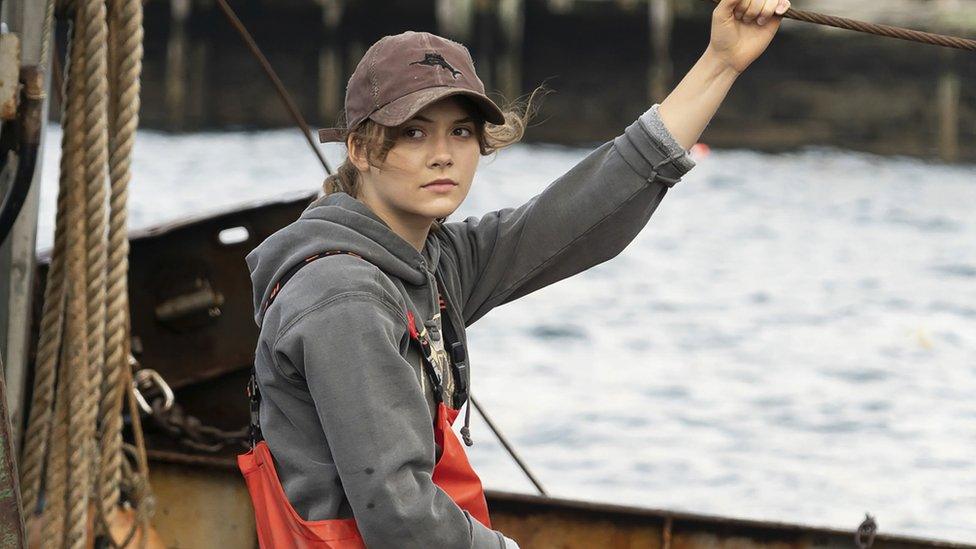
Emilia Jones plays Ruby who is struggling to choose between her family's fishing business and going to music school
So why did it win?
There wasn't a huge amount of love for Coda within the Academy when the nominations were announced in early February. But as voters began to catch up with the best picture nominees they'd missed, suddenly it became very popular indeed.
Jones has described the last few months as an "amazing ride", adding: "I feel very lucky and grateful that people have been so nice about the movie so it means we can keep promoting it."
Asked by the BBC's Sophie Long what advice she had given her cast-mates going through awards season for the first time, Matlin said: "I've said to them, to the younger cast in particular, to embrace everything that comes their way.
"People are going to be offering their congratulations, they're going to want a piece of them.... just breathe it in and enjoy the journey to the max. Because after it's all done, everyone moves on to the next thing.
"I just say, have a good time."
Related topics
- Published13 August 2021
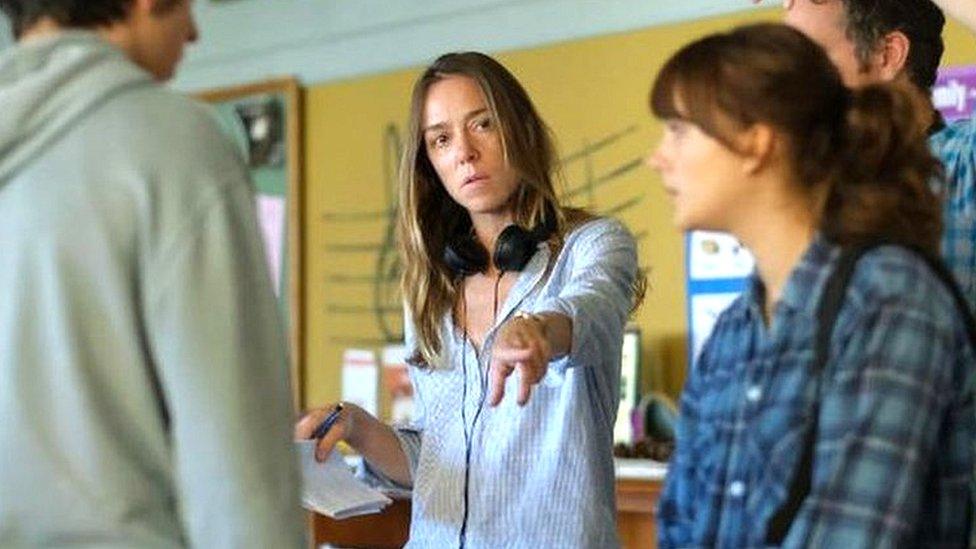
- Published21 March 2022
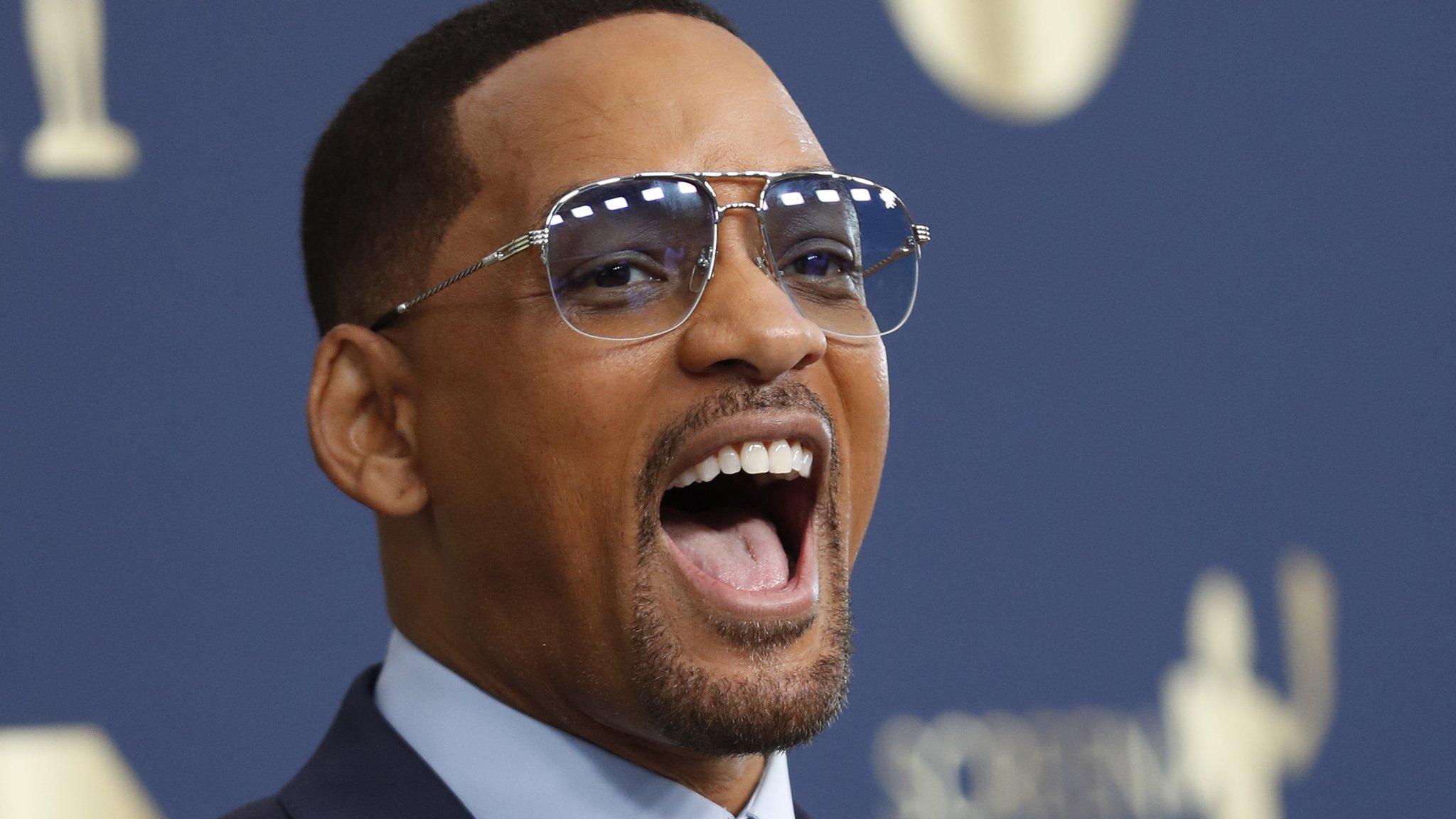
- Published24 March 2022
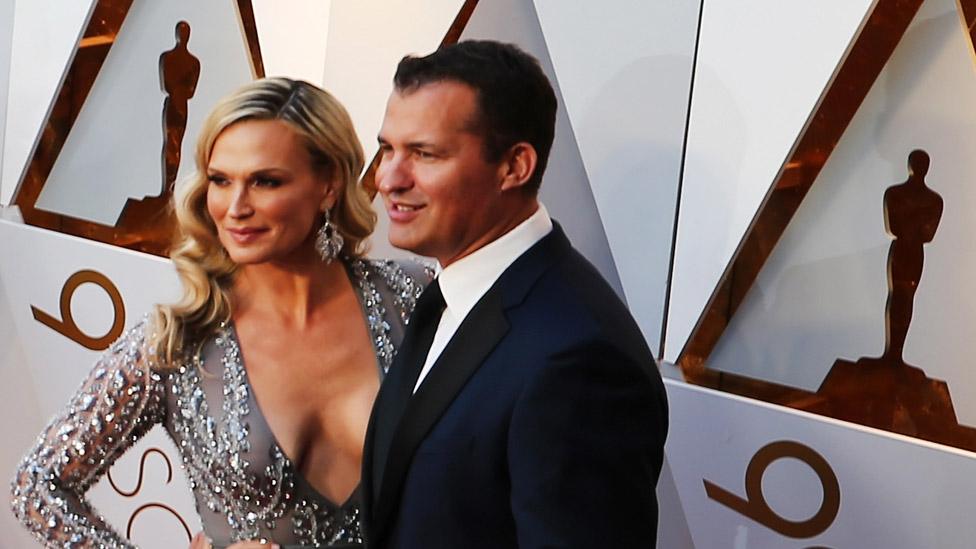
- Published23 March 2022
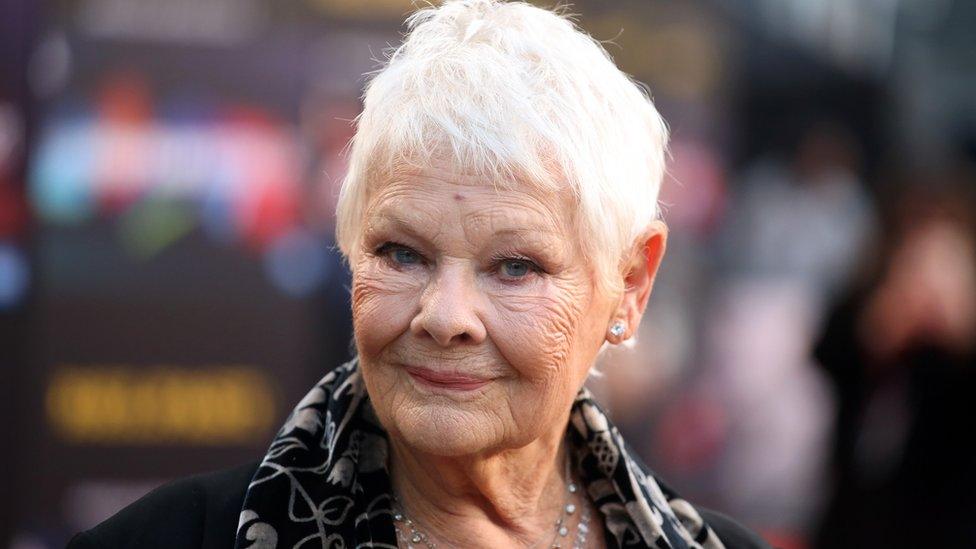
- Published24 March 2022
